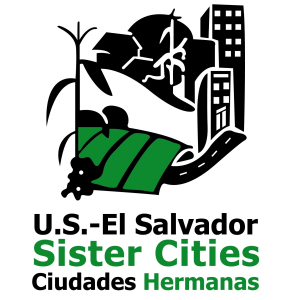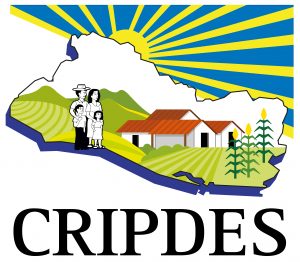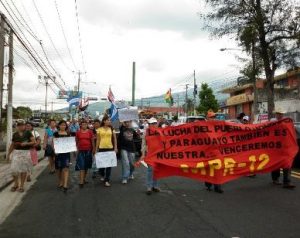Politics, Rights for Youth and Women
Salvadoran Anti-Terrorism and its Mirror Image, March 3 2007
By Jesse Kates-Chinoy
Introduction:
October, 2006: The Salvadoran Legislative Assembly approves decree #108, the “Special Law Against Acts of Terrorism.” The law is made public and applicable on November 16, 2006. The law re-writes several articles of the Salvadoran Penal Code, and creates several new categories of felonies. Most all of the acts that are clearly and universally recognized as “terrorism” (explosives on planes and buildings, poisoning food and water supplies, etc.) were already covered in Salvadoran Law. The thrust and novelty of the new “Anti-Terrorism Law” is the creation of ambiguous language and concepts that allow subjective interpretation of events and actions by police, attorneys and judges. María Silvia Guillén, Director in El Salvador of the Foundation for Studies of Applied Law, FESPAD, observed that the law creates “wildcards that allow the concepts and penalties of the law to be invoked or left aside at any given time, influenced by any political motive.” The language of the law creates several figures that are decidedly unclear. Let’s take a look:
Specifics of the Law:
Briefly, a rundown of the articles in the Special Law Against Acts of Terrorism that provide cause for concern:
– Chapter 3, Article 6: “Armed Occupation of Cities, Towns and Buildings.” The law indicates that anyone who participates in takeovers or occupation of “cities, towns, buildings, private lots, public areas, diplomatic areas or places dedicated to religious activity”, and in doing so use arms, explosives or “similar articles” and disrupts normal activities in those areas, will be punished with 25-30 years in prison. We should ask ourselves: “What are ‘similar articles?’”. Are they sticks? Chains? Rocks? It is up to police and judges to decide on a case by case basis. What about workers going on strike who close the factory doors? What about rural peasants who carry their machetes with them on a march through San Salvador to demand rural public health services?
The law goes on to specify that anyone who “participates… or supports the simulation of any of the acts contemplated in the law”, can receive 5-10 years in prison. (Chapter 3, Article 9.)
– Chapter 3, Article 16: “Hostages.” Anyone who “detains… another person with the goal of obliging the State, international inter-governmental organization or person to perform a specific action” may be punished with 35-45 years in jail. At the time that this document was written, a coalition of student’s groups from the University of El Salvador has taken over a portion of the campus, closing and locking the gates and demanding that the university accept 200 more students in the entering freshman class. The university maintenance personnel and several professors are on the premises. The police are free at any time they choose to interpret this action as taking a hostage, thus terrorism, or not.
– Chapter 3, Article 19: “Security in Airports.” Anyone who in the airport “carries out an action that… perturbs in any way the services there provided” may be punished with 15-20 years in prison. This would apply to the recently striking airport workers, CEPA. Perhaps they hadn’t considered themselves terrorists before.
– Chapter 3, Article 41: “Legal Entities”: When any of the individuals convicted of infractions to the Anti-Terrorist Law pertain to and represent the administration or directive bodies of any legal organization, the organization itself can be made to pay a fine of 150,000 – 500,000 dollars, and be legally disbanded. Again, Salvadoran social movement organizations take note.
– Chapter 3, Article 29. “Financing of Terrorist Acts.” Anyone who “through any means direct or indirect provides, collects, or transports funds, or tries to give financial or other services with the intention that they be used totally or partially to commit any of the criminal conducts described in the law will be punished with 20-30 years in prison and a fine of 100,000-500,000 dollars.”
– Chapter 3, Article 45 “Declaration of Undercover Agents and Witnesses”: Another change that the Anti-Terrorism Law makes to the Salvadoran legal books and penal code is the type of evidence admitted. This law allows as admissible testimony any declaration of “undercover agent, victim or witness made through electronic means with distortion of voice and image…” Defendants need not know their accusers or witnesses.
– Chapter 3, Article 34. “Special Circumstances”: Finally, this article of the law allows monetary penalties and jail time to be increased by up to 33% if the infraction occurs with any of a series of conditions that include: acts committed by a group of 2 or more people, destruction of private or public property, or when the goal of the activity is to have an influence in governmental decisions. The law thus directly targets previously legal political advocacy efforts.
Mirror Image:
Does the Salvadoran “Special Law Against Acts of Terrorism” sound at all familiar to those of us keeping an eye on President Bush’s security and privacy policies? It’s not the first time that Salvadoran security measures are influenced by and drafted from U.S. policy. Starting in the early 80’s Salvadoran military personnel were trained in the School Of the Americas. Today, the United States has installed an “International Law Enforcement Agency”, ILEA in El Salvador to train police forces throughout Central America. It is no wonder that this most recent piece of Salvadoran law takes much of its language and thrust directly from U.S. policy. As the Bush administration is using “anti-terrorism” to push through an otherwise hard to swallow agenda, the implementation of the Anti-Terrorism law in El Salvador should provide all of us with a glimpse of what is in store (or already happening) in the United States.
Proposals:
Salvadoran social movement organizations are working against the “Special Law Against Acts of Terrorism” by proving its unconstitutionality and by defying the law and continuing to work for justice. A broad coalition of organizations called the “Coordination for Peace, Dignity and Social Justice” is preparing a legal attack on the law to show how it is inadmissible under the Salvadoran Constitution. This document will be presented publicly on March 24th of this year, the 27th anniversary of the assassination of Archbishop Oscar Romero. Simultaneously and unanimously, the Salvadoran social movement will continue to organize, educate and mobilize in the face of the terror that this law creates. And we need to re-create and build networks to support the possible consequences of these actions. Guadalupe Mejía, historic worker for human rights in El Salvador and member of COMADRES, Mothers of the Disappeared observed that “in the war if they captured one of our young people, we all knew what to do and do and do to get them back. Now they are doing the same things to us as they did in the war. Just because it’s legal this time doesn’t mean that we will let them have all of our youth.” This author agrees.



